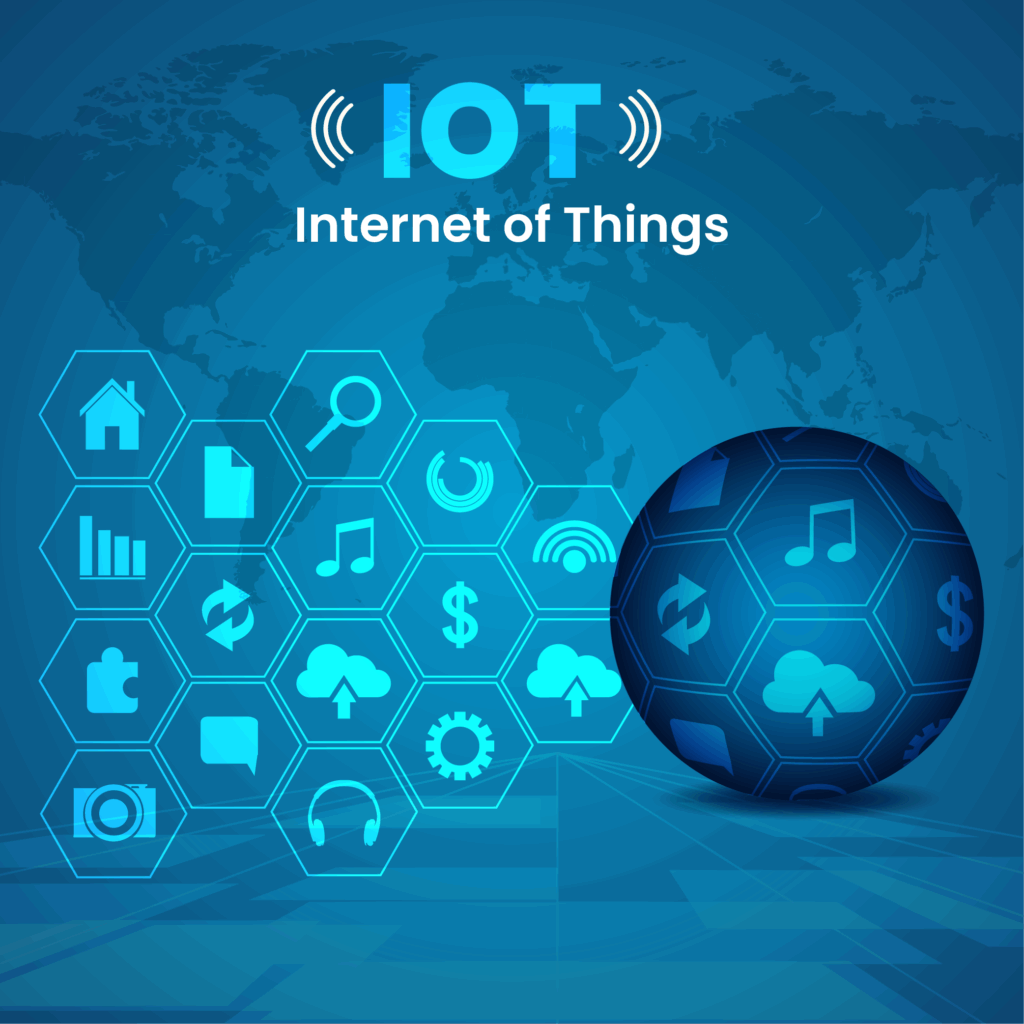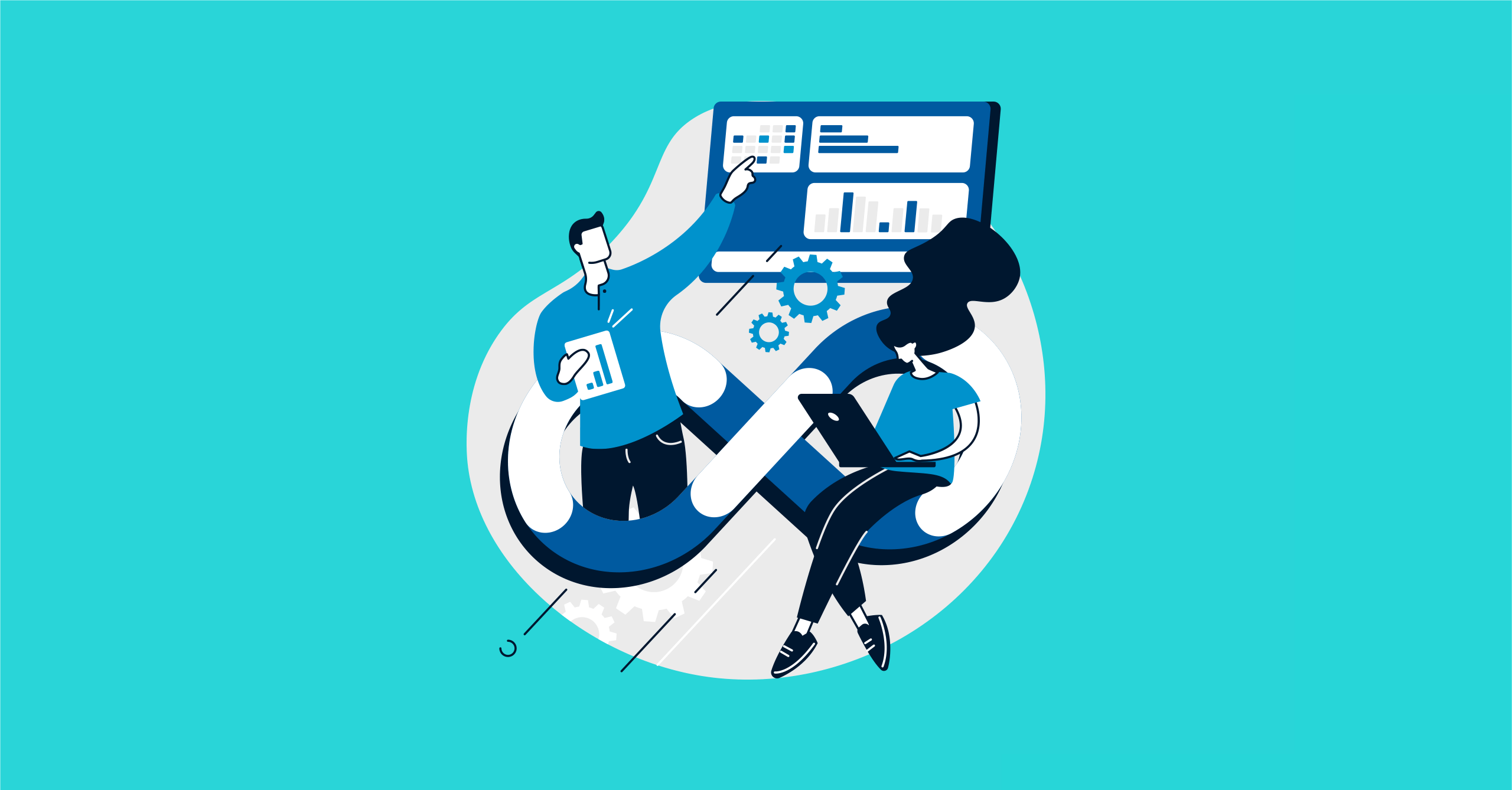Today, businesses lose time due to systems based on manual data entry and compromise productivity with processes that are open to human error. The inability to instantly monitor the status of critical machines delays breakdown and maintenance processes, while lack of data or accuracy issues undermine decision-making processes. At this point, IoT (Internet of Things) offers modern and sustainable solutions to all these problems.
IoT is a technology infrastructure where devices or machines can exchange data with each other, process this data and produce meaningful outputs without the need for human intervention.
It connect things to internet which used in daily life and render them to more intelligence and interactive. Thus, businesses reduce costs by automating their operational processes, optimize resource utilization and gain the ability to make real-time decisions. In short, IoT is one of the fundamental building blocks of digital transformation that improves quality of life and makes business processes smarter.
How The Internet of Things Does It Work?
The Iot (internet of things) ecosystem consists of intelligent devices, processors and sensors to analyze, transmit and gathering the data. The most important factor here is that the entire process can operate real-time and seamless without any intervention of users. Of course, users can give manuel instructions, change the system’s settings and access the datas as needed. For instance, In Smart Cities Software, Iot systems can monitor the traffic density, show the occupancy rate of parking areas, measure air quality and automatically inform the relevant units.
How Internet Of Things Can Accelerate The Digitalization Process?
When considered holistically, Iot is the one of the most driving forces of Digital transformation. The machines, devices and infrastructures that unobservable instantly with traditional methods; thanks to Iot is kept in surveillance, care processes and breakdowns became more predictable. This not only saves time and costs but also supports uninterrupted service delivery.
For example, IoT devices can collect real-time data through sensors and transmit it to IT systems. This data can be used to monitor the performance of systems and take instant actions. Thus, by integrating into IT Service Management processes, it increases operational efficiency, optimizes resource utilization and enables remote management of systems.
If you want to learn more about IT Service Management, you can look at our blog post titled “What is Information Technology Service Management (ITSM)?”
By providing businesses with an agile structure, it provides a significant advantage in making faster decisions, reducing the margin of error with automation and achieving sustainable growth targets.

What are the Benefits of the Internet of Things?
The limitations of traditional systems are insufficient to meet the need for speed, efficiency and instant control in today’s business world. This is where the Internet of Things (IoT) becomes a game-changing technology for organizations of all sizes, not just for individual users, with the powerful advantages it offers. IoT makes business processes smarter, scalable and sustainable with real-time data transmission, automation and AI-powered analytics. Here are the prominent benefits of IoT systems:
1. Enables smart decisions in real time:
Data collected by IoT devices can be analyzed instantly, allowing systems to make automated decisions. In this way, operational delays are prevented, and critical interventions can be made without wasting time.
2. Facilitates tracking of business processes:
From production lines to IT infrastructures, every step becomes digitally traceable. With IoT, processes become transparent, performance analysis becomes easier and data-driven optimization opportunities arise.
3. Maximizes employee productivity:
When repetitive tasks are automated, employees can be utilized in more creative and strategic tasks. At the same time, healthier environments are provided in terms of occupational safety and workforce planning.
4. Easily integrated with different business models:
IoT systems can seamlessly integrate into existing ERP, CRM, manufacturing and IT infrastructures. This flexibility accelerates companies’ digital transformation processes while maintaining operational integrity.
5. Saves time and costs:
Automating processes reduces errors and delays. It also offers significant cost advantages in areas such as maintenance, energy consumption and labor.
The Internet of Things (IoT) has become a priority for all organizations seeking transparency, speed and efficiency. All the solutions you need to increase your operational power are waiting for you at SPIDYA Software and ODYA Technology!”
